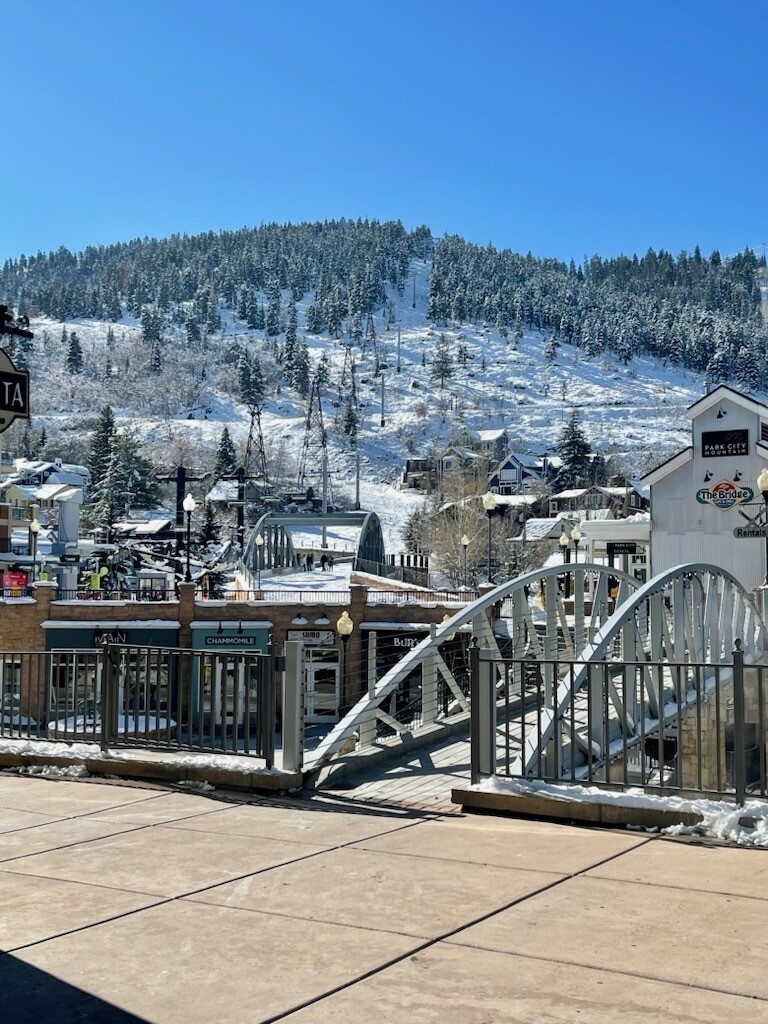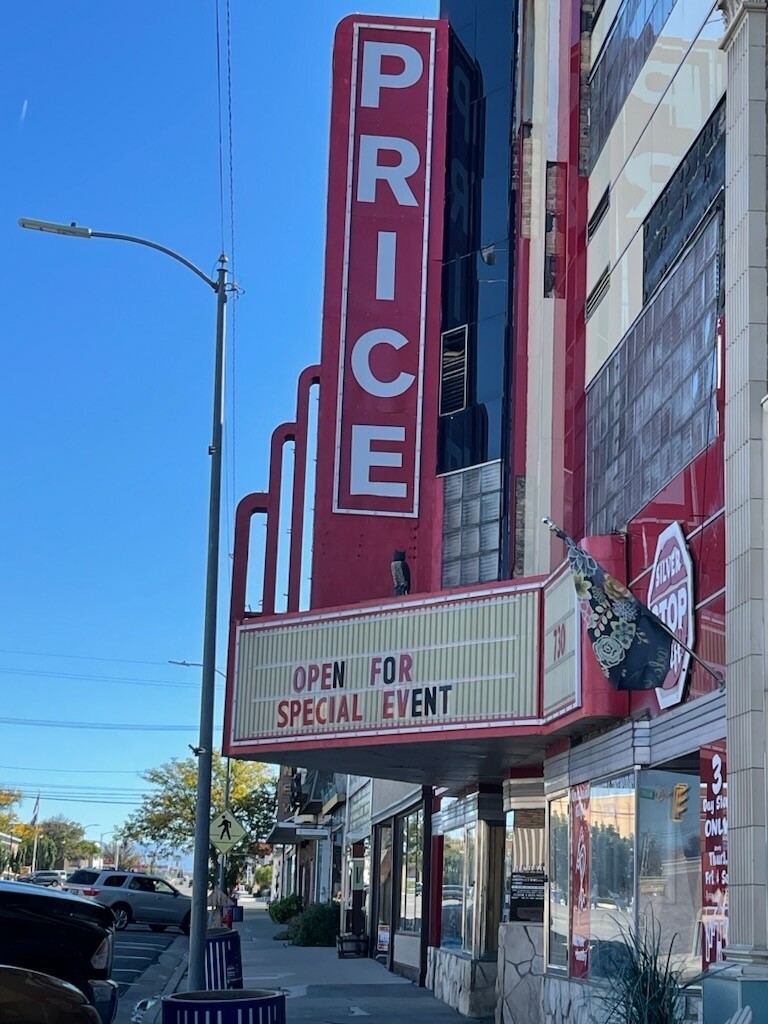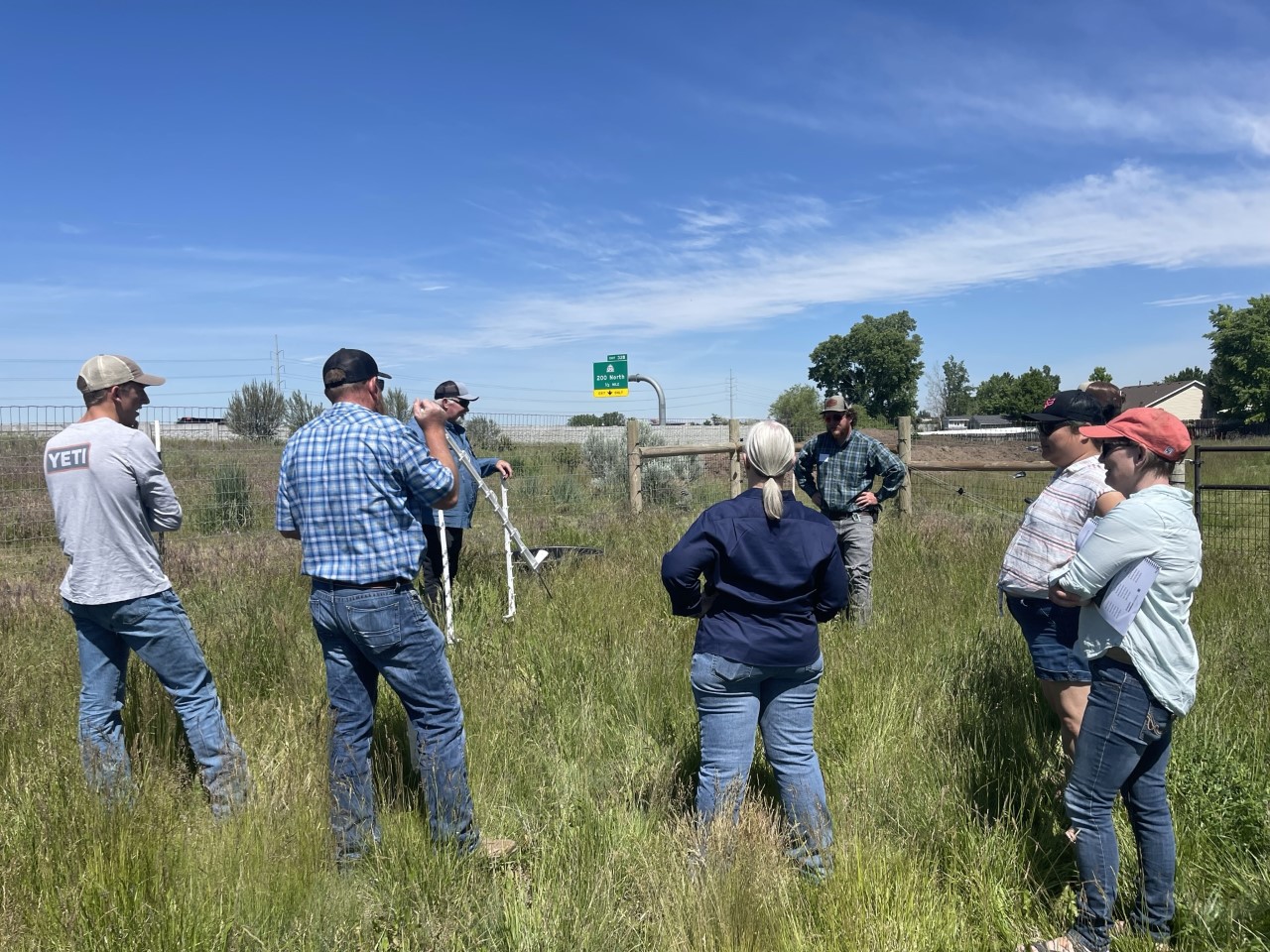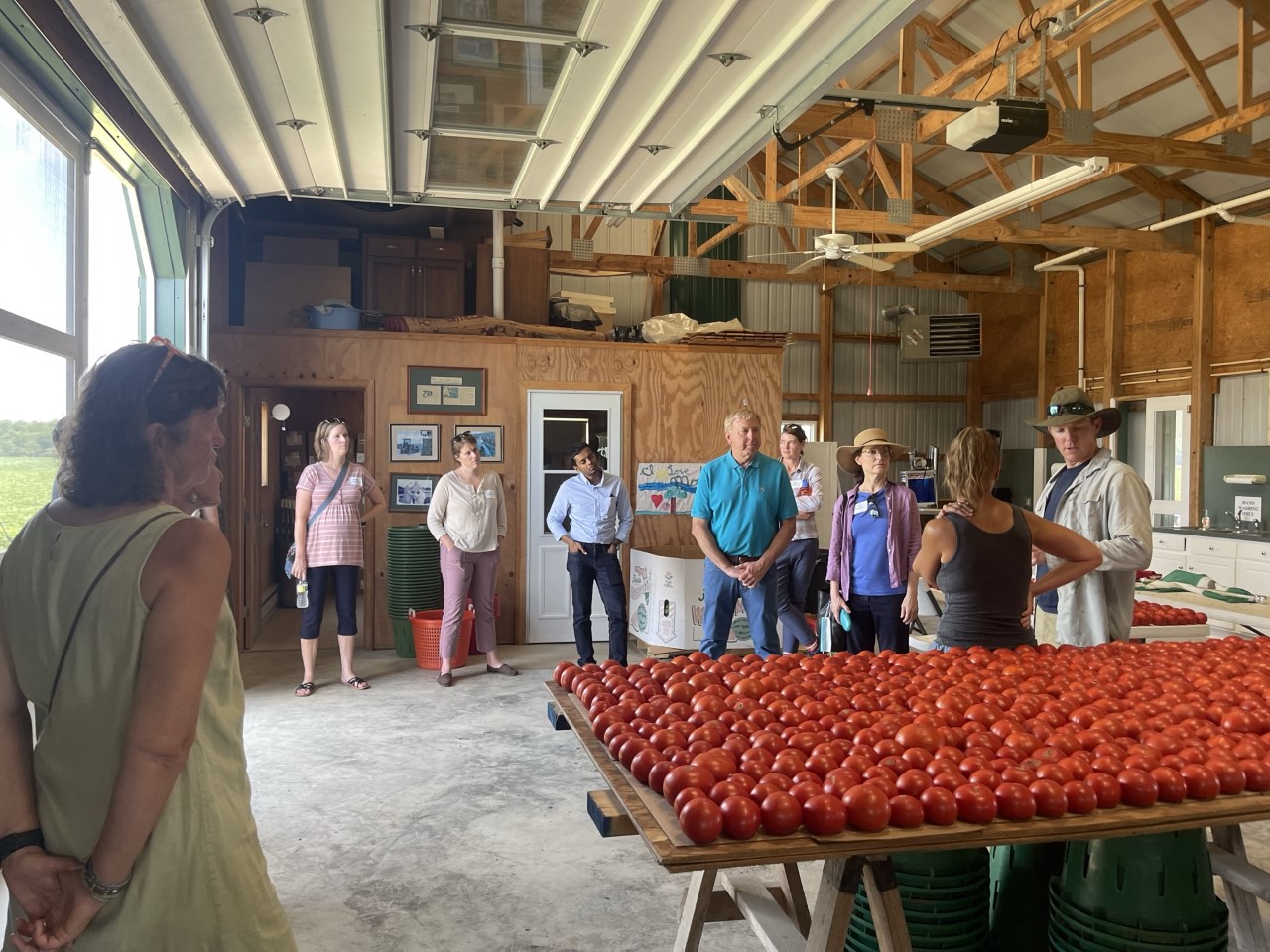CANRI functions as an important avenue for promoting interdisciplinary research on the environment. Housed in the College of Humanities & Social Sciences but working with students and faculty across the university, the institute provides opportunities for faculty from across disciplines to collaborate, conduct research, seek grants, engage with community organizations, and work with graduate students. Faculty affiliated with CANRI have extensive experience using multiple research methods to explore human dimensions of environmental problems and solutions, especially those that relate to the Intermountain West.
In recent years, Bear Lake has experienced an influx of visitors and new residents, which is impacting the local environment and communities in a variety of ways. The Bear Lake research project will engage students from across one undergraduate and three graduate courses at USU by training them to use historical and qualitative methods for the benefit of local communities. The data collected is intended to expand understandings of the environmental concerns related to increased recreation, in-migration, and climate change at Bear Lake from a variety of stakeholders. Students and professors will engage local scientists, part-time and full-time residents, community leaders, and local environmental organizations to assess scientifically-grounded concerns alongside community perceptions of impacts related to increased tourism and in-migration. The data collected will be used to enable environmental and community advocates to better design communication campaigns and community engagement efforts to effectively address the problems identified.
This project will benefit students by teaching them applied research skills. It will also engage them in work that is of use to adjacent communities, thereby teaching them how to conduct community-centered research. The stakeholders interviewed will also benefit from the research results, which will be presented in a public forum that engages them in conversation. The students and researchers will use the data and subsequent conversations to develop and share a series of research briefs that summarize findings.
Students from the following courses will be conducting research alongside Dr. Betsy Brunner, Dr. Jessica Schad, and Dr. Stacia Ryder:
SOC 6630: Social & Community Dimensions of Natural ResourcesSOC 6800: Climate & Environmental Justice
CMST 6999: Science Communication
CMST 3280: Organizations & Social Change
Dr. Courtney Flint
Team: Dr. Courtney Flint, Casey Trout, Leonard Henderson, and Caitlyn Rogers
The Rivers Project explores the social ecology of rivers in the Intermountain West with particular focus on the role of river-related organizations in the relationship between human and natural dimensions of river systems. There are 476 HUC 8 watersheds in the Intermountain West and so far, over 425 organizations have been identified across 11 states. We are conducting structured interviews with representatives of these organizations. One key focus is on factors influencing success of these organizations as well as obstacles with an eye to synthesizing best practices for achieving river-related objectives. We are also working with national datasets on watershed integrity and health to characterize the watersheds in which organizations focus their efforts.


Wellbeing Across Utah Cities
Team: Dr. Courtney Flint, Casey Trout, Sarah Rogers, Christina Pay, Dr. Hyojun Park, and Tim Keady
Dr. Flint’s Utah Wellbeing Project (2018-2023) gathers perceptions of wellbeing across Utah communities and compares them with community indicators to inform local municipal leaders and their planning processes. Surveys conducted since 2019 have collected information from over 14,000 Utah residents across 35 cities. Current efforts are focusing on presenting findings from the 2021 survey to city councils and developing a dashboard of resources for city leaders to help improve various aspects of wellbeing within communities. This project is supported by the Utah League of Cities and Towns, the Utah Agricultural Experiment Station, and USU Extension.



Dr. Jennifer Givens
Team: Dr. Jennifer Givens and Master’s student Gina McCrackin
Utilizing Utah Agricultural Experiment Station Project (UTA-01369) funding, we are comparing media coverage of climate change across contexts. Gina McCrackin, a Master’s student in Sociology, is analyzing media coverage of climate change in contexts related to Indigenous Peoples and Native Nations. This project builds upon the research of now graduated Sociology Master’s student Tyler Spradlin, whose work compares national newspaper coverage of climate change over time to local coverage of climate change in three mountain town newspapers in the Intermountain West. There are opportunities for students interested in this research to be involved.
Team: Dr. Jennifer Givens, PhD student Michael Briscoe, and other collaborators.
With funding from NSF and USDA (NSF EAR #1639458 and USDA #2017-67004-26131) we, along with an interdisciplinary and multi-university team, are studying Innovations at the Nexus of Food Energy and Water Systems (INFEWS). Our focus as social scientists is on incorporating sociological considerations and variables into the larger team analysis of food, energy, and water (FEW) resource resilience and sustainability. As part of this work we draw attention to societal drivers and social and environmental outcomes of the current FEW nexus, highlight issues related to inequality, power, and social and environmental justice, and emphasize opportunities for social change in a paper published in Frontiers in Environmental Science.

Team: Dr. Jennifer Givens and Dr. Jessica Schad
The Great Salt Lake is desiccating, and this drying and shrinking poses alarming risks to the surrounding area. Dust from the exposed lakebed contributes to poor air quality and negative human health outcomes. A shrinking lake is also harms birds and other species that depend on the lake, and it negatively affects lake related industries including tourism. We collected survey data from Utahans on their awareness of this issue and their views on the causes, consequences, and ways to address this local threat to human, animal, and environmental well-being, the costs of which could be expensive in both monetary and non-monetary ways. We are currently seeking additional funding to support further work on this important project. There are also opportunities for students interested in this research to be involved.
Dr. Jessica Schad
Team: Dr. Jessica Schad, PhD student Kristen Koci
As a Utah Agricultural Experiment Station Project (UAES; 2020-2025) and through support of a UAES seed grant, Dr. Schad and PhD candidate Kristin Koci are examining how different types of natural resource dependency (extractive and non-extractive) impact rural communities in Utah with a focus on wellbeing and mental health. Along with secondary data from a variety of sources, they are using data from Dr. Flint’s Utah Wellbeing Project (https://www.usu.edu/utah-wellbeing-project/), interviews with USU Extension agents working in rural areas across the state, and case studies with in-depth interviews in two rural Utah communities to better understand these interrelated issues. A team graduate and undergraduate student researchers are contributing to various aspects of the project, thus training them to conduct rigorous applied sociological research that can make a difference in rural community quality of life and policymaking. They are developing partnerships with researchers, local organizations, and government entities, including USU Extension agents, throughout Utah who are also trying to understand and address these issues.

View of Ski Lift and Downtown Park City, Utah View of Theater in Downtown Price, Utah
Team: Dr. Jessica Schad, USU PhD Student Edem Avemegah, USU PhD Student Zubair Barkat
- With funding from a variety of sources including USDA-NIFA and NRCS-CIG, Dr. Schad’s research in this area examines the social factors which drive conservation attitudes and behaviors among agricultural producers. She studies how sense of place, land tenure, and social networks, for example, relate to soil and water conservation practice adoption and persistence among different types of agricultural producers and landowners. Current funded projects include:
- Thriving Agricultural Systems in Urbanized Landscapes (https://thrivingag.org/what)
- Smart Foodscapes: Islands of Perennial Legumes and Forbs (https://www.usu.edu/smart-foodscapes/)
- Utah Soil Health Partnership: Utah Soil Health Network


Sustainable Grazing Institute in Kaysville, June 2022 Farm Tour in Maryland, July 2022
Dr. Mehmet Soyer


Dr. Julia Clark
Northern Mongolia Adventure and Discovery in Science is a registered 501(c)3 non-profit organization that seeks to use scientific inquiry to explore the natural and cultural resources of northern Mongolia through research and conservation efforts. We work with local and international stakeholders, professionals, students, life-long-learners, volunteers, and tourists to produce high quality, data driven research and teach professional field research skills.
Dr. Roslynn McCann
Learn more about Dr. McCann's projects here: Sustainability | Extension | USU
Dr. Anna Cohen
This five-year project uses archaeological, geospatial, ethnographic, and archival data to investigate the relationship between water and culture in the Mountain West. With funds from the Bureau of Reclamation, current research focuses on Northern Utah with plans to work in the southeastern portion of the state.
This project evaluates the adaptive success of political isolation or political interaction strategies in ancient eastern Honduras. Using remote sensing data and other tools of digital heritage, this project is unifying new and legacy archaeological data from Honduras, especially in regions at risk of destruction from deforestation and development projects.
Using techniques from geochemistry and mineralogy, this project examines how urban landscapes and political power form and change over time. Ceramic and spatial data are derived from nearly ten years of research at Angamuco, an ancestral Purepecha urban landscape in Michoacan, Mexico.

